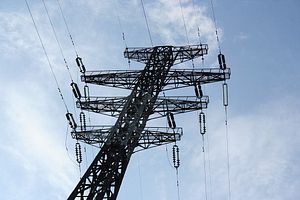The recent rallies in Kabul and in other parts of Afghanistan, or even outside of the country, over the route of a power project has brought up many ethno-social and political debates within the Afghan community. The first massive yet peaceful march took place on May 16, 2016, led by activist and politicians, mainly from the Hazara minority. The second gathering of the Enlightenment Movement (جشن روشنایی), however, had a ruinous ending. On July 23, 2016, a deadly attack by Islamic State (ISIS) murdered at least 80 people and wounded hundreds of demonstrators. The attack on the one hand showed the weakness of the state in protecting its citizens’ basic rights to rally. Concurrently the attack raised more flags over the series of organized attacks that have been taking place against the Hazara minority, whether by ISIS or the Taliban. Such incidents are testimonies to not only an incompetent government, but the vast divisions between different factions that exist in the country.
The Hazaras, a mostly Shia minority, have been the main force in these demonstrations, tenaciously asking the government to keep its original plan of passing the Turkmenistan-Uzbekistan-Tajikistan-Afghanistan-Pakistan (TUTAP) electricity project through their regional territory. President Ashraf Ghani’s administration had announced that the route for the new transmission lines cannot go through Bamyan province, which angered the Hazara. For many outsiders, this seems to be a normal project, but in Afghanistan it touches on quintessential geopolitical and ethnic issues, making it the cause of a contentious debate in the country.
On the technical side, the project aims to increase Afghanistan’s electrification rate from just 30 percent of the population to almost 60 percent of the population. In 2014, Jim Liston, the Asian Development Bank’s regional energy specialist, showcased these statistics and stated that the TUTAP is no longer a dream but rather a tangible project. Lacking a national grid is one of the main issues in Afghanistan and, hence, the country has to build back-to-back converters of different voltages, currents and velocities coming from Turkmenistan, Tajikistan, and Uzbekistan. Erecting these power plants and power converters will allow the Afghan government to provide electricity to more than 10 million Afghans across the country. The fact that at last one of the importing lines could pass through Bamyan would give huge geopolitical importance to the province. Such an important project hence needs great care, consideration, and support, and cannot be jeopardized. The project also can give importance to the locals and bring prosperity to some provinces more than others.
Historically, the central region of Afghanistan is mainly dominated by the Shia Hazara population. It is clear that the demonstrators do not just want electricity in their houses, as Ghani has promised to provide enough electricity for Bamyan and the neighboring central cities; rather, the prostesters want to have the power to control the power. The demonstrations petitioned the government to change the project’s route to its “original” plan, demanding “justice and consideration of balance in development.” The planned power line will provide electricity to many cities, including Kabul, and having the ability to control Kabul’s electricity is fundamentally important to any minority or group.
In January of 2016, a Taliban attack on a critical power line supplying Kabul plunged large swathes of the Afghan capital into darkness. The act proved that the Taliban has strategic attack tactics, beyond their well-known suicide attacks. This has had a tangible psychological impact on the people and the government of Kabul, especially in today’s “modern Kabul.”
The thousands of TUTAP demonstrators and their leaders, like former vice president Mohammad Karim Khalili, have not yet signaled their clear intentions; however, it is fair to assume that having control over Kabul and other eastern provinces’ electricity flow could handsomely strengthen the Hazara ethnic group’s bargaining power over the capital.
Under pressure, Ghani called for a six month suspension of the project and ordered a special committee to conduct a detailed feasibility study. Ghani also insists that the project’s route through Salang was approved by the cabinet of the former government, and that the current National Unity Government “did not have any role in determining the route of the project,” according to Khama Press.
TUTAP, however, is just an excuse to open up some old wounds. Certainly, the Hazara, who account for approximately 12-15 percent of the total population of Afghanistan, feel betrayed by Ghani, who promised social justice, equality, and equal opportunities to everyone in the country during his presidential campaign. Even though the government has claimed that the change in route is based purely on economic reasons, the angry and disappointed protesters feel that it is an act of discrimination. These rallies have also sent a strong message to foreign investors that the cost of doing business in Afghanistan is not low. A six month suspension is an example of how delicate the Afghan Unity Government is and how exposed it is to domestic ethno-political games.
This power line is not and will not be the only “national” project for Afghanistan. There is a clear dilemma that the Afghan government faces: bow to the demonstrators, or proceed to changing the routes despite their protests. But at the end of the day, the government’s responsibility in providing social, economic, and political justice in such a diverse country is being closely watched. It becomes even more obvious that making deals with certain tribal leaders and offering them some privileges is no longer working. The people of Afghanistan want to be involved in this decision-making and any acts that result in discrimination and injustice can have unforeseen consequences.
Safiullah Taye holds an executive master’s in energy and resources. He acquired a bachelor degree from Georgetown University, School of Foreign Service in Qatar and has appeared as a commentator on Al Jazeera. He is passionate about geopolitics, the rights of minorities, and development, particularly in Afghanistan.

































